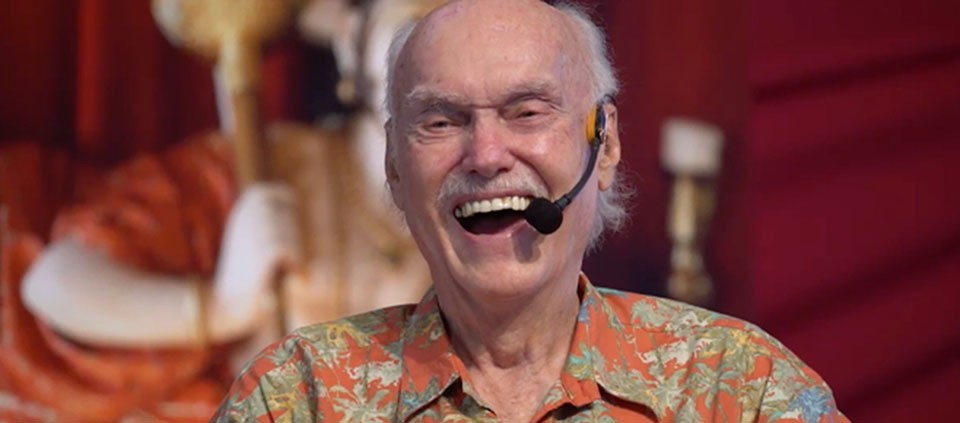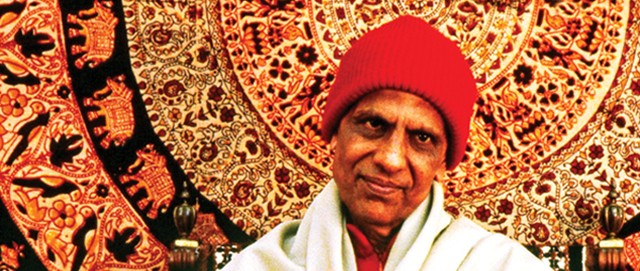Ram Dass, Another Pilgrim on the Path of Love

The iconic spiritual teacher Ram Dass, born Richard Alpert, died on Sunday evening at 88 years old, after five decades of researching, exploring, and writing on human consciousness. The Buddhist magazine Tricycle today called him “a bhakti yoga with love as his path”—making him in some ways a spiritual descendant of Swami Kripalu, who called himself “a pilgrim on the path of love.”
“I would like my life to be a statement of love and compassion—and where it isn’t, that's where my work lies,” Ram Dass wrote. Swami Kripalu put it like this: “Truly, the wise proclaim that love is the only path … and the only scripture.”
“I would not be doing what I’m doing at Kripalu were it not for Ram Dass,” says longtime Kripalu faculty member and meditation teacher Bhavani Lorraine Nelson. “He was extremely important in my life. I’ve drawn from his books and teachings for many, many years, and I still use them today.”
While he was known for his experiments with Timothy Leary in using LSD and other psychedelic drugs to open the mind, Ram Dass later dedicated himself to contemplative and substance-free practices of awakening. He traveled to India in 1967 and studied there with Neem Karoli Baba, known as Maharaj-ji, who gave him his name, which means “Servant of God.”
“When he came back from India and taught meditation, he said, ‘We’re not here to get high, we’re here to get free,’” said Bhavani, who met Ram Dass several times. “To me, freedom is the possibility of making conscious choices in life. We are so much run by patterns—we seem to wear a vest full of buttons and when somebody pushes a button, we immediately react. To have a gap between the stimulus and the reaction is what freedom is all about, and Ram Dass was all about that.” As he put it, “Learn to watch your drama unfold while at the same time knowing you are more than your drama”—an instruction that echoes the Kripalu Yoga practice of Self-Observation Without Judgment.
Ram Dass also practiced selfless service, or karma yoga, founding the Seva Foundation, which provides healthcare in underserved areas of Asia and the Americas; and cocreating the Living-Dying Project to support healthcare providers and caregivers dealing with terminal illness.
Carole Weinstein, a Kripalu Yoga teacher and Kripalu R&R faculty member, says she has a weathered copy on her shelf of Ram Dass’s 1971 classic Be Here Now—the same copy she’s had since the 1970s. “His basic message was also the basic message we teach at Kripalu: Be here now, be aware now,” she says. “It was so inspiring to see how he drew on that teaching after his debilitating stroke, continuing to thrive and be present.”
A massive cerebral hemorrhage in 1997 left Ram Dass virtually immobile and struggling with language, yet in the 2017 documentary Ram Dass, Going Home, he said, “The stroke pushed me inside even more. That’s so wonderful.” “Despite the constraint and discomfort of his long-suffering body, I had the distinct impression that he was already free,” the Buddhist practitioner and psychiatrist Mark Epstein wrote in an article earlier this year about spending the day with Ram Dass.
“One of his most beautiful quotes was, ‘We’re all just walking each other home,’” Bhavani recalled, her voice full of emotion. “Now he’s gone home.”
